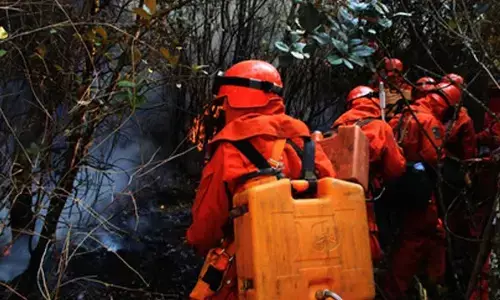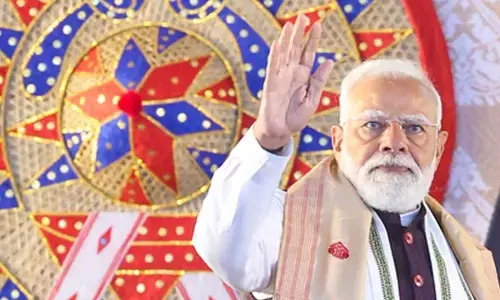Pandemic panic: Impacting individual's travel decisions

Arun K Chittilappilly
Travel and tourism had become one of the most important sectors in the global economy before COVID-19, accounting for 10 per cent of global GDP and more than 320 million jobs worldwide.
Travel and tourism had become one of the most important sectors in the global economy before COVID-19, accounting for 10 per cent of global GDP and more than 320 million jobs worldwide. Given the immediate and massive shock to the tourism industry, the coronavirus (COVID-19) pandemic has triggered an unprecedented crisis. People lived in a mobile world and assumed that until Covid-19 arrived, they would maintain the status quo in mobility; sadly, the pandemic has threatened the lives and lifestyles of millions of people. As a result, most countries declared lockdowns as a precautionary measure to prevent social distancing in the event that Covid-19 spreads.
With over 1.4 billion domestic travellers in the COVID-19 pre-pandemic period, people have strong longings to travel and that desire is an internal force that drives people to fulfill physical and psychological needs for escape, recreation, relaxation, prestige, novelty, adventure, and social interaction steers one's motivation and subsequent intentions.
Several previous studies have found that people cancel or postpone international trips or flights to avoid becoming infected during pandemics. Such self-protective behaviors are primarily influenced by demographic factors (primarily, age and race) as well as the perceived risk of infection. People avoid domestic land travel as well as air travel because of the fear of contracting viruses.
While travel was restricted for the majority of last year, people are gradually resuming their normal routines. However, people's perceptions of places have shifted. According to the findings of the Future of Travel research, majority of Indians have become more aware of the broader impact of their trips, with 70 per cent of travelers wanting to travel more sustainably in the future, 78 per cent of them expect the travel industry to provide more sustainable travel options to meet their needs.
Travel social anxiety
As a result of the COVID-19 pandemic, increased travel anxiety has emerged as one of the key risk factors influencing tourists' holiday planning and implementation and the length of planned vacations and related activities.
Tourists adjust their plans and destination behaviors influenced by the presence of risks, whether real or perceived; risks such as contracting a virus, to one's health, play an important role in deciding on a destination and a tourism provider.
Viruses are not new to travelers around the world; however, the scale and risks associated with COVID-19 are unprecedented in human history due to the ease of person-to-person transmission, long incubation period and the fear it has instigated.
Getting away from the crowd
Travelers from India planning trips in 2021 have expressed a desire to avoid other tourists, with a surge in interest in lesser-known destinations this year. 76 per cent of people will avoid crowded tourist attractions, implying that destinations will need to implement new, smart crowd management measures to appease visitors, while 54 per cent of people want to travel to alternative destinations to avoid travelling during peak season to avoid overcrowding.
Providing assistance to local communities
People's awareness of their impact on the environment and local communities has increased as a result of the pandemic. Subsequently, more sustainable, and regenerative travel is being considered by travelers. According to a study, 75 per cent of respondents want their travel choices to help the destination's recovery efforts, and 73 per cent want to see how their spending helps the local community.
Shift toward sustainable travel
It is believed that sustainable travel will ensure that future travelers will have access to a world full of destinations worth visiting. For the past few years, developments and implementation initiatives and products are being set in motion in order to help communities, reduce over tourism, preserve culture, and protect the environment. As a result, a long-term future in which the entire industry collaborates to further transform the global travel experience into a powerful force for good is being cultivated.
(The author is Managing Director, Wonderla Holidays Ltd)















